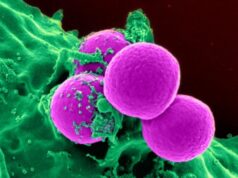New study analyzes 50 years of research on depression in medical residency
More than one in four doctors in the early stages of their careers has signs of depression, a comprehensive new study finds. And the grueling years of training for a medical career may deserve some of the blame.
That’s bad news not just for the young doctors themselves, but also for the patients they care for now and in the future. Depressed doctors are known to be more likely to make mistakes or give worse care.
The startling findings come from a careful investigation of 50 years’ worth of studies that looked for depression symptoms in more than 17,500 medical residents.
It’s published in the new issue of the Journal of the American Medical Association by a team led by a current resident at Harvard and a University of Michigan Medical School psychiatrist who specializes in studying physician mental health.
The team aimed to find definitive answers to questions that have been studied many times and in many ways: What percentage of new doctors might be depressed, and how much does that change over time?
Find your dream job in the space industry. Check our Space Job Board »
By collecting and combining data from 54 studies done around the world, the researchers concluded that 28.8 percent of physicians-in-training have signs of depression.
There was a small but significant increase in the rate of depression over the five decades covered by the study.
“The increase in depression is surprising and important, especially in light of reforms that have been implemented over the years with the intent of improving the mental health of residents and the health of patients,” says Srijan Sen, M.D., Ph.D., senior author of the new study and a member of U-M’s Depression Center, Institute for Healthcare Policy and Innovation, and Molecular and Behavioral Neuroscience Institute.
Sen runs the Intern Health Study, a major effort to understand stress and mood issues people face in their first year of training after medical school. The study enrolls 3,000 medical interns at 50 sites every year and tracks their progress from before training begins through their first year of training.
Sen worked with the study’s lead author — Douglas Mata, M.D., M.P.H., of Harvard University — and the other authors to pull together and analyze a wide range of studies.
Hard years; hard numbers
They focused on the first post-medical school training years, called internship and residency. Those years are marked by long hours, intensive on-the-job learning, low rank within a medical team, and a high level of responsibility for minute-to-minute patient care.
While the percentage of residents with possible depression found by any one study ranged from 20 percent up to 43 percent, the bottom line when all the data were equalized and tallied together came out to 28.8 percent.
Having a definitive number, and definitive evidence that the proportion of new doctors with depression symptoms increases over time, should help spur action to help address these issues, Sen says.
While many medical schools and teaching hospitals have begun to address student and trainee mental health more completely in recent years, more needs to be done, the authors note.
“Our findings provide a more accurate measure of the prevalence of depression in this group, and we hope that they will focus attention on factors that may negatively affect the mental health of young doctors, with the goal of identifying strategies to prevent and treat depression among graduate medical trainees,” Mata says.
This article originally appeared at University of Michigan Health System.
Journal Reference:
- Douglas A. Mata, MD, MPH et al. Prevalence of Depression and Depressive Symptoms Among Resident Physicians: A Systematic Review and Meta-analysis. JAMA, December 2015 DOI:10.1001/jama.2015.15845










